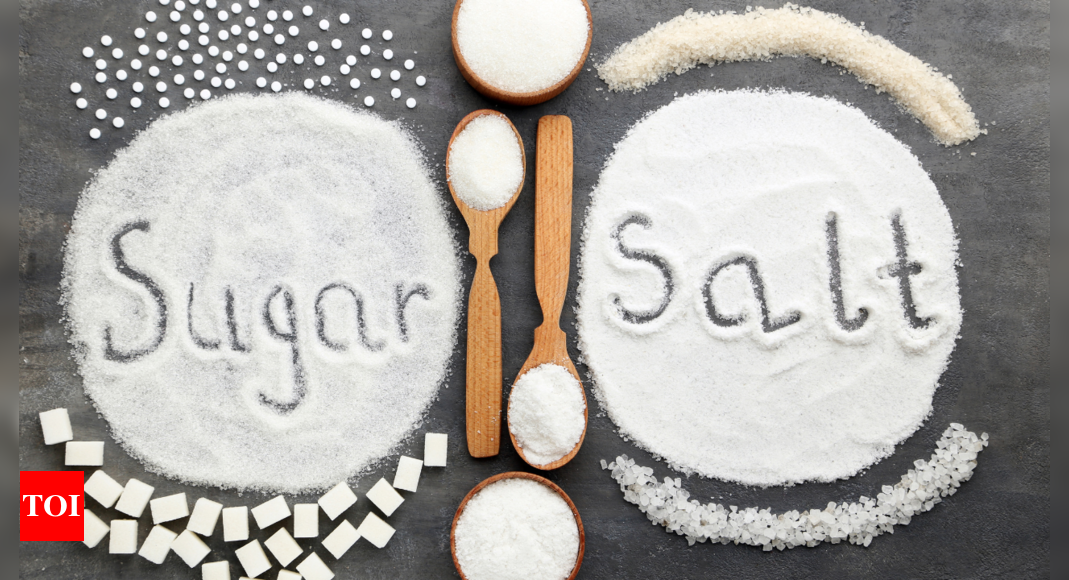The role of sugar in our diet
A simple carbohydrate like sugar gives you energy quickly.Fruits, vegetables, and dairy products all include naturally occurring sugars in addition to important minerals and fiber. But added sugars—which are frequently included in processed meals, sugar-filled beverages, and confections—have no nutritious value and add empty calories to the diet.
Consuming too much sugar can lead to a host of health problems, including weight gain and obesity, as high-sugar foods are often calorie-dense but nutrient-poor. High sugar consumption can also lead to insulin resistance, a precursor to type 2 diabetes. Additionally, diets high in sugar are associated with increased risk factors for heart disease, including high blood pressure, inflammation, and high triglyceride levels. Sugar is also a primary contributor to tooth decay and cavities.
Recommended sugar intake
The American Heart Association (AHA) suggests that men and women should consume no more added sugar than nine teaspoons (38 grams) or six teaspoons (25 grams) each day, respectively. This covers sugars added at the table as well as those added during food processing or preparation.
The role of salt in our diet
Maintaining fluid equilibrium, nerve transmission, and muscle function all depend on salt. But most people eat more salt than they need, mostly because of restaurant and processed foods.
According to Dr. Bimal Chhajer, Senior Cardiologist, former consultant at AIIMS & Director, SAAOL Heart Centre, New Delhi, “Consuming excessive amounts of salt is associated with a number of health problems, including high blood pressure. This is because high sodium causes the body to retain extra fluid, which puts strain on the heart. One of the main risk factors for heart disease and stroke is this high blood pressure. Furthermore, consuming too much salt over time can harm the kidneys, resulting in diminished kidney function and chronic renal disease. Consuming excessive amounts of salt can also cause calcium to be lost through urine, which over time may weaken bones.”
Recommended salt intake
According to Indian health guidelines, a person should not exceed 5 grams of salt each day. It can be especially helpful for people who have high blood pressure or are at risk of developing hypertension to limit their daily salt intake to 3.75 grams. These recommendations seek to lower the risk of heart disease and other conditions linked to consuming too much salt.
Finding the right balance
Making thoughtful food choices and balancing one’s consumption of sugar and salt are necessary. The following ways can assist in striking this balance:
1. Read nutrition labels: Look for added sugars and sodium amounts on food labels. Choose goods with less sodium and added sugars.
2. Cook at home: You can regulate how much sugar and salt are in your food when you cook at home. Spices, herbs, and other seasonings can be used to improve flavor without using salt.
3. Select whole foods: Since they are naturally lower in added sugar and salt, whole, unprocessed foods like fruits, vegetables, lean proteins, and whole grains are the better choice.
4. Avoid consumption of processed foods: Added sugars and salt content are frequently elevated in processed foods. Limit your intake of fast food, snacks, and sugar-filled beverages.
5. Hydrate adequately: Getting enough water might help regulate the body’s salt levels and lessen cravings for sugary beverages.
6. Use sugar alternatives wisely: Stevia and monk fruit are natural sugar alternatives that you may use sparingly.
7. Moderate portion sizes: To prevent overindulgence, even foods that naturally contain salt and sugar should be eaten in moderation.
Maintaining general health and preventing chronic diseases require striking a healthy balance between sugar and salt intake. People can reap the benefits of both without running the risk of illness if they know the functions and suggested limits of both dietary components and make educated food choices. Including these techniques into everyday routines can result in a diet that is healthier and more balanced, which will eventually improve long-term wellbeing.
Nutrient-dense superfoods one must consume everyday
Source Homevior.in




